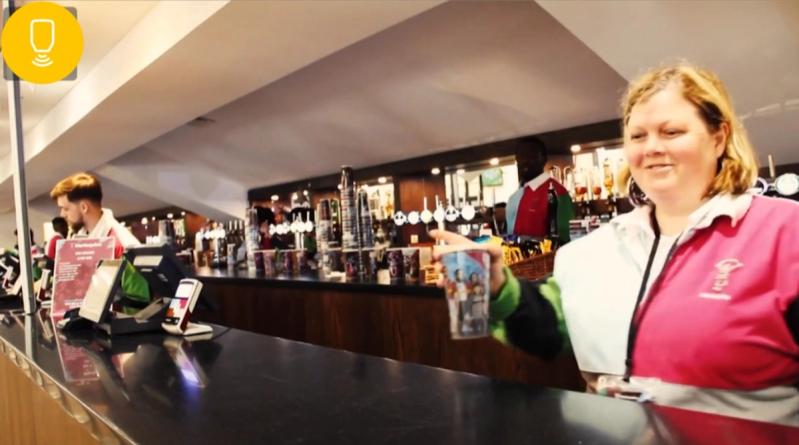
Recruit, train, RETAIN! How empathy & technology can help solve the hospitality staffing crisis
The Staffing Crisis - Improving staff retention
The staffing crisis in hospitality has the potential to decimate our industry - and it doesn’t look like it’s going away. If anything it’s getting worse. Just this week, the Office for National Statistics reported that there are a staggering 83% more vacancies available in the hospitality industry.
Higher wages, signing on bonuses and staff incentives are all being used to fill positions, but every employer is worried where this will lead. You offer £10 and the place over the road raises their wage to £11. A vast number of experienced staff have left the industry and not returned. To recruit and retain staff, do we need to start looking at things from a different perspective? Experienced staff are worth their weight in gold, but what about the inexperienced 18-year-old’s starting their first job?
Let’s put ourselves in their shoes for a moment. If we can understand their motivations and thoughts, could this lead towards a solution to the crisis…?

The importance of empathy
You’ve just turned 18 and you’ve applied for a bar job with a local employment agency. They are desperate for staff, having numerous clients on their books - so they are happy to take and place inexperienced staff. The agency provides little training and sends you off to your first job with no more than uniform requirements, a contact name and (if you’re lucky) a basic guide on where to go.
The nerves are high, but you are excited to start working. The morning of your first shift arrives and you make your way to the venue. You’re not sure where to go but you see others dressed like you and follow them. You queue to sign in, then stand around waiting to be deployed. When you finally get to your bar, the supervisor is busy and the only experienced staff are getting ready for service. So you wait until they can assign you a role, brief you and undertake basic training. Normally most of the training will be “on the job” when the event goes live, with the experienced staff showing you the ropes.
However, with the industry-wide shortage this is no longer a given. It’s quiet to start and you begin to find your feet. Then the first rush hits. You sink or swim. How this goes, how the team pulls together and how quickly you learn all contributes to how you feel at the end of the event. If you feel well trained, supported and part of the team you’ll hopefully return. If you’re not happy with the day, do you come back? Or do you take the alternate shifts on offer at a different venue?
This reality is being lived across the country every weekend, especially in stadiums where employers are competing for the same 3pm kickoff schedule.
How can we make sure inexperienced members of staff have an experience they want to repeat, while meeting the needs of the business?
Orientation/training days cost money. Staff might turn up to training and then not to their first shift wasting more time, effort and money. As businesses we must make the initial environment welcoming, with clear instructions on where to go and what time they are needed. Most importantly, we must free up our managers’ time to be able to greet, brief and train staff before service begins.

The Role of Technology
Technology can also make those first shifts easier and more enjoyable, thus aiding staff retention.
The move to cashless has taken away the uncertainty around cash handling, but EPOS systems have got bigger and can do more things. They have more screens and drop down menus than ever, and can pull in mobile and timed orders. So now your staff member is presented with a confusing box of tricks that is no longer intuitive and easy to use. The time spent processing orders has not improved, with the staff member staring at the screen instead of engaging with customers.
When selecting the technology available, we must look at it from the end user’s perspective: is it quick to train, simple to use and robust enough to cope with the demanding environment?
By ensuring the above, inexperienced staff need less training, will learn quicker and will engage more with the customers. The more experienced staff spend less time training others and more time serving customers, and the team spirit behind the bar inevitably improves. Retention grows, staff become more experienced, and they perform better while enjoying their workplace. They are now less likely to be lured away with the promise of a bit more money.
Shameless plug for SwipeStation!
SwipeStation is proven to turn inexperienced, casual staff into super-efficient service professionals - even on their first shift. There is no hardware behind the bar: no touch screens, no tills and no payment machines. The customer hands them a receipt and the staff member simply fetches what’s written on it without having to look down at a screen. There are no cards or cash to handle, no tills (or till training!) and minimal chance of miscommunication between staff and customers. By removing deliberation, ordering and payment from the service area, bar staff can start serving three customers a minute on their first shift. Here’s a one-minute time lapse video that supports that claim!
The result of this increased efficiency is fewer staff required behind the bar, making their experience more rewarding and less fraught. Meanwhile, fewer staff serving more fans means lower costs and increased revenue. The end result is fulfilled staff (who return for future shifts), happy fans who spend more and ultimately a noticeable improvement to the bottom line.
